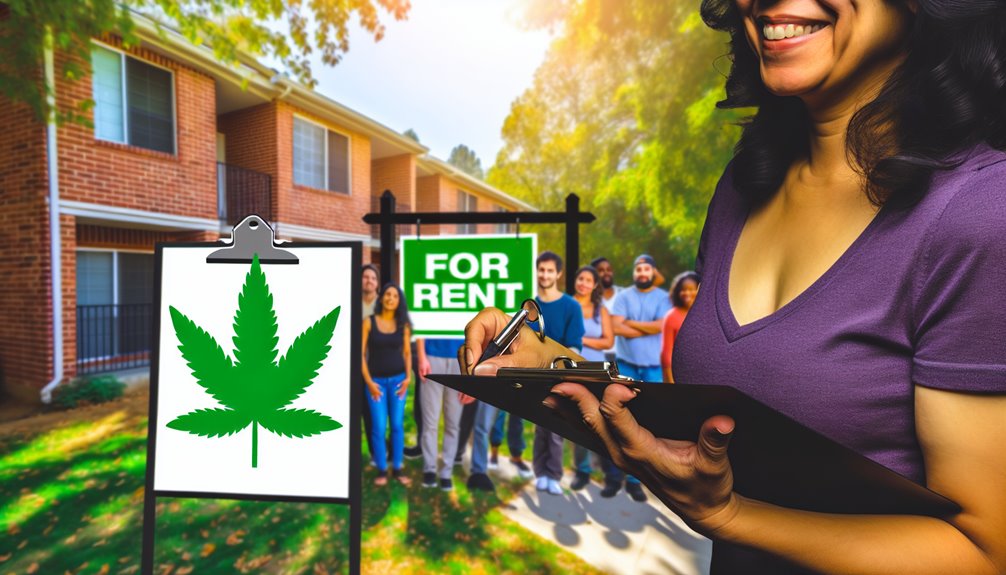You’re seeing Maryland’s automatic expungement reshape access for medical cannabis patients by sealing eligible possession and dismissed charges without petitions, cutting background barriers that slow clinic intake, card approvals, housing, and jobs. Statutory timelines trigger coordinated data-matching across courts and the Central Repository to purge records, while agencies must honor sealed dispositions. Yet mismatches, unpaid fees, or processing delays can stall relief—and that’s where knowing your eligibility, verification steps, and appeal options becomes critical.
What Maryland’s Automatic Expungement Actually Does

Although “automatic expungement” sounds sweeping, Maryland’s statute targets narrow categories and timelines. You benefit when the law directs courts and agencies to remove specific cannabis-related cases without a petition, then update statewide indexes. The relief is limited: it clears eligible dispositions from public view and prompts record sealing across databases, but it doesn’t erase every trace or restore rights beyond what the statute specifies. You don’t file forms; the state initiates action and notifies repositories. For past cases, retroactive relief applies where the law authorizes it, aligning records with current policy. You still should confirm compliance and correct any lingering entries.
Key Eligibility Criteria and Timelines
Before you assume you qualify, pinpoint the charge, disposition, and date. Maryland’s automatic expungement hinges on statutory categories: decriminalized cannabis possession, dismissed or acquitted counts, and convictions legislatively designated for clearing. You must meet age thresholds for certain juvenile-to-adult matters and satisfy waiting periods that run from final disposition, completion of supervision, or payment of fines. Disqualifiers include pending charges, new convictions within the lookback, or sentences not fully completed. Confirm no restitution remains. Verify that your record matches the eligible statute citation, not just a label. Track timelines by case, not arrest. Document proofs so you can advocate effectively for clients.
How Records Are Cleared Without Petitions

Once a record qualifies under Maryland’s automatic-expungement statutes, the judiciary and criminal justice agencies initiate clearance without any petition. You don’t file forms; agencies execute statutory duties. Courts run data matching across case management systems and the Criminal Justice Information System to identify eligible dispositions. Clerks issue automatic notifications to law enforcement repositories and the Central Repository. Agencies seal and purge entries on set schedules, then confirm completion back to the court. If a record spans multiple agencies, the system cascades notices to each custodian. You should monitor court dockets for status updates and promptly address any mismatch or erroneous retention.
Impacts on Employment and Professional Licensing
Even with automatic expungement in motion, Maryland law draws sharp lines between what employers and licensing boards may see and use. You gain workplace protections when qualifying cannabis records are sealed from public databases, but regulated professions still face statutory disclosures where public safety is implicated. Understand what’s expunged, what remains accessible to state agencies, and when you must report. Licensing reform is narrowing collateral consequences, yet noncompliance can jeopardize your credential.
- Verify your case status in Judiciary Case Search.
- Review board-specific disclosure rules before renewing.
- Limit employer authorizations to necessary scopes.
- Document rehabilitation and compliance for fitness determinations.
Housing, Background Checks, and Tenant Screening

Tying housing access to your record, Maryland’s automatic expungement can change what landlords and screening companies may lawfully see and use. When qualifying MMJ-related records are expunged, tenant screening reports should exclude those entries, reducing unjust lease denials. You can cite state statutes to dispute inaccurate background findings and demand reinvestigation. Expungement also narrows what third-party databases may report about dismissed charges, lessening collateral credit impact from outdated debt collections tied to old cases. While expungement doesn’t erase valid eviction records, it limits improper use of sealed criminal data in housing decisions. Document your relief, monitor reports, and assert your rights.
Benefits for MMJ Access, Clinics, and Pharmacies
Stronger housing protections from expunged MMJ-related records carry over to your care: when Maryland courts seal qualifying cannabis offenses, you face fewer barriers to obtaining a medical cannabis card, scheduling evaluations, and purchasing at licensed dispensaries. Clinics can verify eligibility without legacy stigma, enabling telemedicine expansion under state guidance and timely renewals. Pharmacies can standardize compliance, streamline the supply chain, and maintain inventory continuity for lawful patients.
- Faster intake: sealed records reduce verification delays.
- Broader access: telehealth evaluations reach rural patients.
- Safer dispensing: clear histories support accurate dosing and patient education.
- Stronger community outreach: clinics and pharmacies coordinate lawful services.
Equity, Public Health, and Stigma Reduction

While expungement is automatic for qualifying cannabis offenses under Maryland law, its impact reaches further: it advances equity, strengthens public health, and reduces stigma tied to prior marijuana convictions. You help clients move past barriers to housing, licensure, and employment that disproportionately burden communities affected by racial disparities. Clearing records improves care continuity, because patients engage providers without fear of judgment or disclosure risk. It also supports community reinvestment by expanding workforce participation and tax base stability. As records seal, you can counsel clients to assert their rights when background checks arise, ensuring statutes deliver real access, dignity, and healthier neighborhoods.
What Patients Should Monitor During Rollout
As automatic expungement advances equity and public health, you should track how Maryland’s statutes and agencies implement the process in real time. Focus on rollout milestones, data transparency, and whether timelines align with statutory mandates. Confirm that eligibility criteria, record categories, and notice procedures match enacted law. Monitor inter-agency coordination to guarantee your record clears across courts, criminal history repositories, and licensing checks without gaps.
- Verify official rollout milestones against statute-driven deadlines and report slippage.
- Audit data transparency: public dashboards, error rates, and processing backlogs.
- Confirm multi-system synchronization—court, CJIS, and background vendors.
- Document discrepancies promptly and escalate through prescribed administrative channels.
Resources and Next Steps for Maryland Patients

From here, anchor your next steps to Maryland law and official channels. Start with the Maryland Judiciary’s expungement portal and the Maryland Medical Cannabis Commission for eligibility guidance. Verify statutes in Criminal Procedure Title 10 and track regulatory updates.
Use community outreach to identify patients needing help. Refer them to legal clinics offering expungement screenings and petition support. Facilitate patient education sessions that explain timelines, record checks, and collateral consequences. Build advocacy networks to escalate systemic issues and monitor compliance.
Document outcomes, maintain confidentiality, and coordinate with public defenders and reentry partners. If errors persist, file motions to correct records and request agency audits, citing controlling authority.
Conclusion
As we navigate these exciting changes together, I want to emphasize how important it is for us to support one another in this journey. Here at Fells Point Cannabis Docs, we’re dedicated to helping you understand your rights and benefits under Maryland’s automatic expungement law. If you have questions or just want to chat about how these changes impact you, we’d love to hear from you! Feel free to drop by our clinic or give us a call at (410) 401-4200. We’re here to help you every step of the way.

